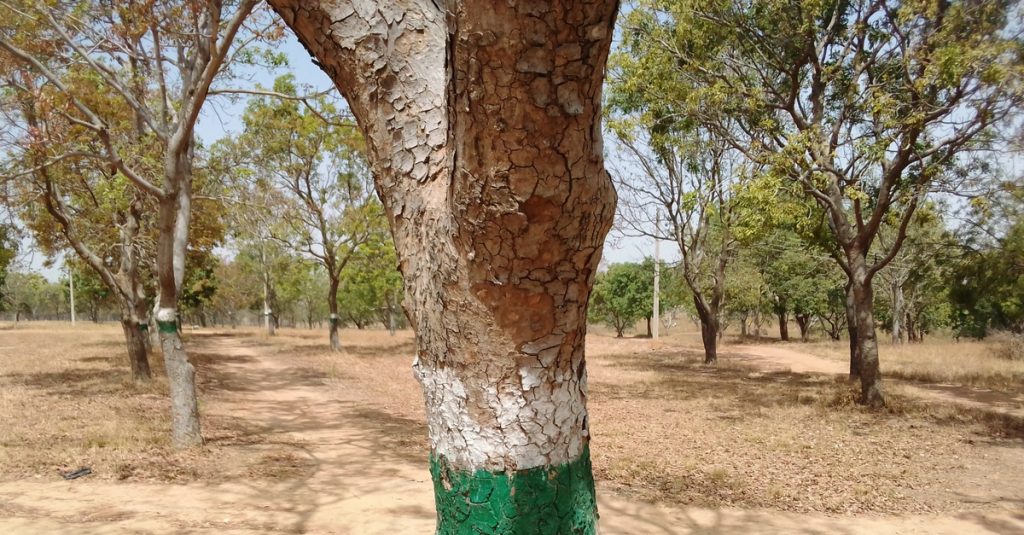Desert landscapes have given way to greenery in the public schools of Sanguéré-Paul, Sanguéré-Gal, Lanavet, Ndiam-Baba, and Bocklé, located in the third district of Garoua in northern Cameroon. This is one of the results of the “Growing with your tree” operation, launched in these schools in 2014 by ERD (Environment Research and Development), to introduce students to the fight against climate change.
The training of 2,500 students (including 1,300 girls) in the reforestation of desert areas led to the planting of 5,000 plans of trees in the five school campuses targeted by the project. “To make the project viable, we also trained 278 adults living in the five target schools in the manufacture and use of improved fireplaces, in order to reduce the impact of the latter on the trees planted,” said Guy Alain Tagne Tiam, Chairman of the ERD, on the occasion of the 48th edition of World Environment Day on June 5, 2020.
“Growing with my tree” was financed to the tune of 9.7 million CFA francs, or about 14,800 euros. The funding was allocated by the Global Environment Facility (GEF), a small grants programme of the Global Environment Facility (GEF), launched in 1992 to promote community initiatives to address global environmental problems.
North Cameroon, a region severely threatened by the advancing desert
ERD is a Cameroonian civil society organization whose mission is to conduct research in the environmental field, consolidate the results and promote sustainable development. The realization of its project to initiate students to reforestation in northern Cameroon also aims to limit the advance of the desert in a Sahelian region where drought is relentless.
In this region, between January and mid-May, temperatures sometimes reach 47 degrees Celsius. This situation favours the advance of the desert, especially since about 97% of the region’s population depends on wood as the primary source of fuel for cooking, which encourages deforestation.
To combat this desertification phenomenon, the Cameroonian government, for its part, launched “Operation Green Sahel” in the early 1980s, which led to the planting of more than 10 million trees. Between 2008 and 2012, 16,500 hectares of land were reforested, with 560,000 seedlings planted. Similarly, 86,483 improved fireplaces were distributed to households to ensure sustainable management of firewood.
Boris Ngounou
